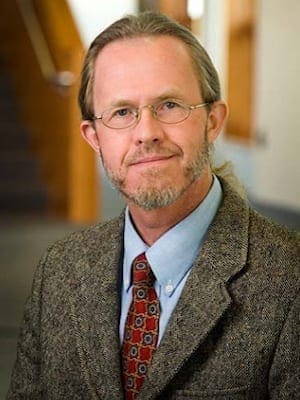Four alliterative words come to mind this Fourth of July holiday: freedom, fundamentalism, finances, and faith.
Freedom is less spoken on our Independence/Freedom Day than other f-words like flag, fun and firecrackers. This year, however, some of us are thinking about freedom and its erosion by act of Congress. The so-called Patriot Act and establishment of a massive Department of Homeland Security appear to risk rather than protect freedoms that terrorism would seek to destroy.
Will we “let freedom ring” in detention prisons where international detainees are kept incommunicado for months–without charges, attorneys, hearings, or trials? Surely we are no safer or freer for having violated the liberties of hundreds held without just cause.
Fundamentalism, of the rampant religious variety, is a major reason freedom seems globally at risk this Fourth of July. Islamic fundamentalism (not Islamic religion) can be blamed both for the attacks of “9/11” and the suicide bombing incidents occurring regularly in Israel. Jewish fundamentalism (Zionism) is at least as blameworthy for the ongoing tit-for-tat violence in the Middle East generally and between Jews and Palestinians in particular.
But I am most familiar with the fundamentalism within which I was raised. It angers me that Christian fundamentalists, right-leaning and wrong-headed, fan the flames and feed the finances of freedom-eroding politics in this country and throughout the world.
Finances have been much on our minds throughout the past couple of years. Financial matters have been a major worry ever since fundamentalist terrorists commandeered a plane into the temple of the world’s major religion, its twin steeples reaching higher into the heavens than any other human creation on earth.
Long after the World Trade Center fell to rise no more, the financial fall-out goes on. We saw better returns in the second quarter of 2003; but stock markets continued to tumble for most of the past two years, and our hopes of them rising steadily again go up and down like the markets used to do.
One of our financial high priests, Alan Greenspan, has presided over the mixed blessing of lowered interest rates. The latest drop of a quarter-point by the Federal Reserve Board brought us to a lending rate not seen since 1958. Instead of reinvigorating the economy, however, this latest act of federal desperation only “fueled disappointment on Wall Street,” according to newspaper headlines the next morning. There is growing fear of devastating deflation, the implosion of an economy built on paper rather than production, more greed than need, and corporate financial folly.
State budgets are hopelessly unbalanced. University systems and local school districts are using the summer break to figure out how to educate with fewer teachers, resources, programs and dollars. Reductions in state and federally funded social services have created a crisis situation among the most vulnerable members of our population and the underpaid professionals who try to assist them.
Charitable contributions in the U.S. reportedly are up slightly over previous years. Yet charities and nonprofit entities are falling right and left. One wonders where the nation’s offerings are being banked and whose pet projects are being bankrolled at the expense of others.
Mainline and centrist denominations like my own have been particularly hard-hit by economic woes. As of June, receipts are down 26 percent to the American Baptist Churches of the Central Region (Kansas, Oklahoma and Arkansas). At least some of our denominational seminaries and colleges are hurting badly. Budget reductions and personnel lay-offs at every level are imminent, tension is tangible and resultant stress is taking its toll on morale and productivity.
Faith is evident always and in every situation of life. Especially in times of uncertainty, financial or otherwise, we are brought down to the basic levels of human existence. Who or what do we, can we, trust? Where does our faith lie?
Fundamentalism arises out of a faith in God that is fundamentally weak and must be bolstered by reference to human absolutes and assurances seemingly more accessible than the divine. It arises now in response to the destruction of financial temples and idols in which even Bible-believing Christians had placed much faith. The awful reality of pervasive Christian subservience to the gods of Western-style capitalism and militarism is revealed in the post-9/11 resurgence of fundamentalism and its political manifestation in our nation’s capitol. This is a form of faith, but it is idolatrous.
I see faith directed elsewhere by some others who also are called by Christ’s name. In a time of financial distress, I see my faculty colleagues exhibiting admirable faith in God and faithfulness to the community and vocation to which God has called us. I witness our seminary graduates going out to serve faithfully in small and obscure congregations, often with little financial reward. Many denominational leaders and international missionaries, through sheer faith properly directed, carry on their ministries despite financial uncertainties, fundamentalist foes and the erosion of freedoms political and religious.
On this Fourth of July, I celebrate some things and worry about others. Some of what I worry about stirs up anger as well.
So may we each celebrate or worry in freedom and faith. May we speak our minds in these frightening fundamentalist times. And may God have mercy on us all.
Tarris Rosell is associate professor of pastoral care and practice of ministry at Central Baptist Theological Seminary.

